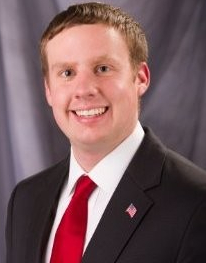By Jessica Salerno, OSCPA senior content manager
As busy season ramps up, accountants should be aware of what they might need to learn about Qualified Opportunity Zones.
 “The idea behind qualified opportunity zones is to try and drive investment into some areas that could use some new dollars,” said Bob Horstman, CPA, senior tax manager with RSM. “The items grabbing the headlines are the offering of a tax deferral or possible exclusion.”
“The idea behind qualified opportunity zones is to try and drive investment into some areas that could use some new dollars,” said Bob Horstman, CPA, senior tax manager with RSM. “The items grabbing the headlines are the offering of a tax deferral or possible exclusion.”
Horstman said clients seeing headlines like these might start to think about whether they may exclude or defer certain items.
The IRS-issued guidance released in October created more questions, Horstman said, like the ability to self-certify.
“You don’t have to register with the state and you can say you’re a qualified opportunity fund, which could give you the ability to take advantage of these benefits,” he said.
 Christopher Axene, CPA, shareholder at Rea & Associates, said his clients are seizing on what they think is a permanent deferral of the gain, and they're reinvesting in qualified funds that are, in turn, investing in zones.
Christopher Axene, CPA, shareholder at Rea & Associates, said his clients are seizing on what they think is a permanent deferral of the gain, and they're reinvesting in qualified funds that are, in turn, investing in zones.
“The devil's always in the details,” Axene said. “And this is one of those areas where there are some misconceptions out there about what you’re getting with this new benefit. If you sell your business and generate some capital gains it's not a permanent deferral of those capital gains. It's at best a permanent deferral of 15% of your qualifying gains.”
He said he’s working with clients on education about this topic since there is confusion about what is possible.
 “If, in 2026, you have to recognize the initial gain you deferred and you put all of your cash from the gain into this fund, the fund may not have distributed cash in the past,” said Rob Roll, CPA, tax senior at GBQ Partners. “So, you will have this massive tax bill coming due.”
“If, in 2026, you have to recognize the initial gain you deferred and you put all of your cash from the gain into this fund, the fund may not have distributed cash in the past,” said Rob Roll, CPA, tax senior at GBQ Partners. “So, you will have this massive tax bill coming due.”
Horstman said many clients think of real estate, but this could also apply to investing in a business that operates in a qualified opportunity zone.
“I think going forward what I’d like to see from the IRS is, because of the uncertainty and how new this is, clarification on how it really works and answers to some of these initial questions,” Axene said. “I'm hoping for some kind of initial deferral on that 180 days and they’ll grant more time for investments.”